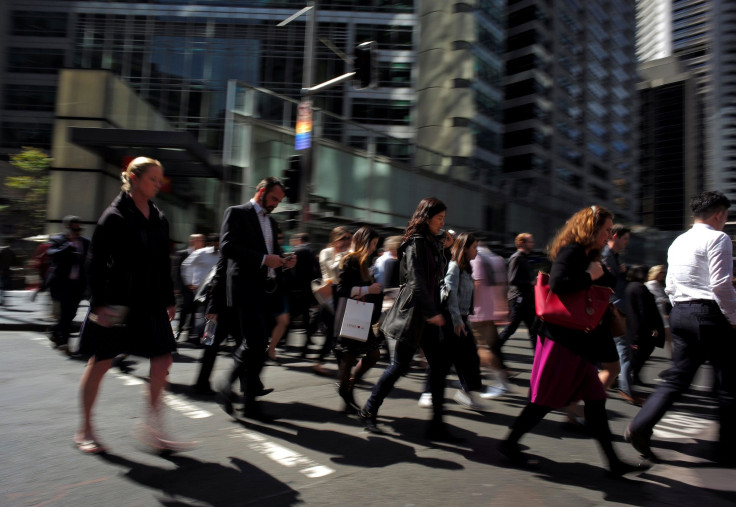Global Gender Gap Index 2016: Australia drops to 46th in gender parity list

Australia still has a big economic gender gap problem. In the new World Economic Forum’s Global Gender Gap Index 2016, Australia has slipped down to 46th place from 36th in 2015, lagging behind New Zealand, Canada, United Kingdom and even behind United States.
The Global Gender Index 2016 finds economic parity between the sexes in each country. It measures progress towards parity between men and women in Educational Attainment, Health and Survival, Economic Participation and Opportunity, and Political Empowerment. According to the current report, the progress towards gender equality has slowed dramatically with the gap at 59 percent.
Australia is at 46th place out of 144 countries, down from its 36th rank from last year, scoring 0.721 out of 1.00 (0.00=imparity, 1.00=parity). It ranks 1st in Educational Attainment, but ranks low in three other areas. It is only 42nd in Economic Participation and Opportunity, 61st in Political Empowerment, and 72nd in Health and Survival.
In comparison, the number one in the list, Iceland, is 1st in Educational Attainment and Political Empowerment, 9th in Economic Participation and Opportunity, and a low 104th in Health and Survival. Australia’s nearest neighbour, New Zealand, is also doing well at 9th place, although it has average ranks in the four key areas.
Doing just a rank better than Australia is the United States, which places 45th. Like Australia, it is number one in Educational Attainment but has paltry scores in other areas. United Kingdom is at 20th, while Canada is 35th.
The top four most gender-equal countries are again the Nordic nations of Iceland, Finland, Norway and Sweden respectively. The African nation of Rwanda has moved one place ahead of Ireland to 5th place, and Ireland, Philippines, Slovenia, New Zealand and Nicaragua make up the top 10.
At the end of the spectrum are Middle Eastern and North African countries: Lebanon, Cote d’Ivoire, Morocco, Mali, Iran, Chad, Saudi Arabia, Syria, Pakistan and Yemen (135th to 144th places respectively).
“These forecasts are not foregone conclusions. Instead, they reflect the current state of progress and serve as a call to action to policy-makers and other stakeholders to double down on efforts to accelerate gender equality,” said Saadia Zahidi, head of Education, Gender and Work, and member of the Executive Committee at the World Economic Forum.
Top 20 most gender-equal countries:
- Iceland
- Finland
- Norway
- Sweden
- Rwanda
- Ireland
- Philippines
- Slovenia
- New Zealand
- Nicaragua
- Switzerland
- Burundi
- Germany
- Namibia
- South Africa
- Netherlands
- France
- Latvia
- Denmark
- United Kingdom





















